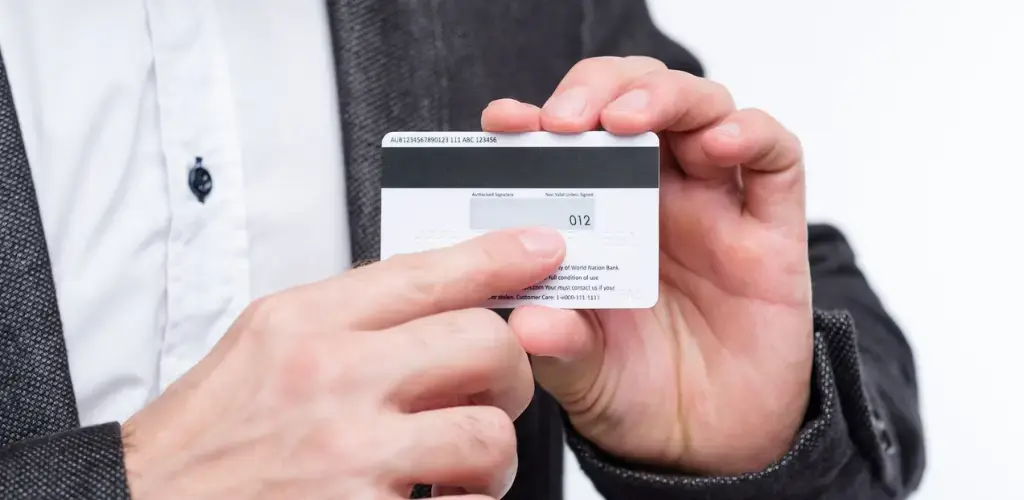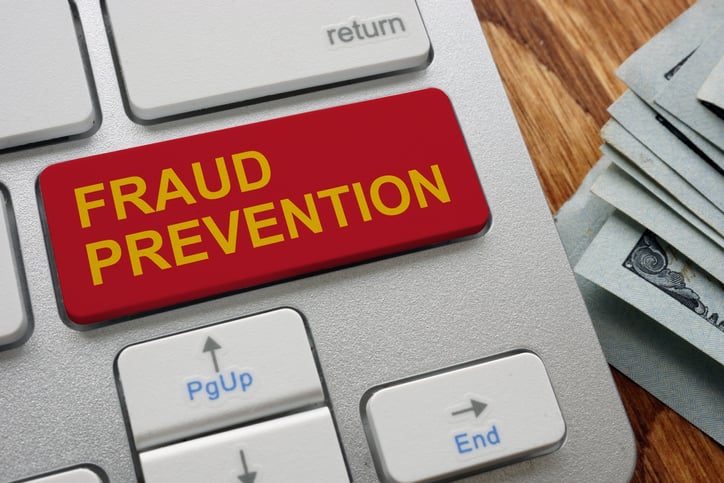
Imagine you’re buying concert tickets online from a glitchy website. You click “Submit,” and you’re redirected to the website’s homepage with no confirmation message. Did your payment go through? Or did someone with nefarious intentions just gain access to your bank account?
You wouldn’t want to use your credit card on an untrustworthy website, so why would you let your supporters feel this way when making a donation?
Credit card processing for nonprofits is the final step people take when crossing the threshold from “prospect” to “donor.” But nonprofits are usually busy with everything that comes before payment processing, like donor cultivation and event planning. It can seem like a daunting process with lots of different terms and legal regulations to remember.
We’ve got your back! This guide covers everything you need to know about nonprofit credit card processing, including:
- What is Credit Card Processing for Nonprofits?
- Credit Card vs. ACH Payment Processing for Nonprofits
- Donation Processing Risks (and Solutions!)
What is Credit Card Processing for Nonprofits?
Nonprofit credit card processing refers to the system your organization uses to securely accept and deposit online donations. If you’re not familiar with this process, it can be easy to get intimidated by the different terms and abbreviations used to describe how it works. Let’s start by defining some of these terms:

- CVV numbers: Card Verification Value numbers, also known as Card Security Codes, tell the merchant you’re in physical possession of the card. These numbers are unique and are sometimes generated by a more complex process to make the codes harder to guess. When that happens, it’s called a CVV2 number.
- AVS: Address Verification Service is a tool provided by credit card processors to merchants (nonprofits) that checks the billing address entered by the cardholder on your donation form against the address on file at the issuing bank. AVS increases declines, but doesn’t tell the cardholder the transaction was declined because of an AVS mismatch.
- ACH: The Automated Clearing House network facilitates business and consumer bank transfers. In other words, it refers to any transaction where you move money in and out of your bank account. Examples include paychecks automatically deposited into your account or bills you pay online.
- Credit card updater: Typically offered by a payment processor, this system automatically updates credit card information (such as expiration dates or new card numbers) to secure recurring donations without interruption. The banks that issue credit cards voluntarily provide card updates to payment processors, allowing them to update expired cards and push payments through.
Credit Card vs. ACH Payment Processing for Nonprofits
Does it matter whether you accept a donation via credit card or ACH? These two processes are not the same, and that’s a misconception that’s important to understand.
Each involves benefits and risks that nonprofits need to understand as they seek to enhance their online fundraising efforts:
Nonprofit Credit Card Processing
Credit cards remain one of the most popular ways to give online, with 63% of donors preferring to use a credit or debit card when donating. While accepting a variety of payment methods is critical to a smooth giving process that encourages more donations, credit card transactions are especially convenient, especially for first-time donors who want to give quickly.
Credit card processing is so beneficial because it offers:
- Accessibility and reach: Donors who don’t own a checkbook or are hesitant to connect their bank accounts to your donation form will be excited to know they can simply input their credit card information. For many donors, this is just like their other online shopping experiences with retailers!
- Additional perks: Some donors may earn points, miles, or cash back when they use their credit cards, providing additional incentives to give. Credit card processing makes this a win-win for both parties—your nonprofit receives donations, and supporters rack up the rewards!
Although credit card processing often involves additional fees, its broader donor adoption makes it an essential offering in your nonprofit’s payment processing approach.
Nonprofit ACH Payment Processing
The key benefit of ACH is that it costs nonprofits less to accept donations via ACH than via credit card. No credit card fees mean more of the donation goes to your nonprofit, which is a huge factor in your fundraising success.
Other benefits of ACH payment processing include:
- Incentivized donations: Donors might be more inclined to give, knowing that not a penny of their donations will go to credit card fees. It’s especially preferable for recurring donations.
- Stability: ACH is more stable because bank account numbers don’t change often, and it doesn’t come with an expiration date like credit cards. Stability matters, especially considering that nearly 20% of declined credit card transactions result from an invalid number or account (8%), lost or stolen cards (6%), expired cards (3%), and invalid CVV codes (2%).
None of this means that you should ditch credit card donations and only use ACH. Both methods of donation processing offer benefits and drawbacks that nonprofits must weigh.
Donation Processing Risks (and Solutions!)
CVV Requirements
CVV codes exist to protect against fraud. If your credit card number has been compromised and someone uses it to make a fraudulent online purchase, they’ll get stopped short when asked for a CVV code they don’t have.
As a nonprofit, putting a CVV field on your online donation form helps verify that a transaction is legitimate. However, it’s important to recognize that this can affect donations.
One of the most basic tenets of nonprofit fundraising is to make it easy to give. Whether this is one-click giving, mobile swiping, or limited donation form fields, you want to ask prospective donors to put forth the least amount of effort required to donate. CVV requirements might just cross the line in terms of the effort that some donors are willing to put in.
There are a couple of things to keep in mind when looking for a solution:
- CVV numbers are not required to process transactions. They are simply a tool to prevent fraud. Talk to your payment processor and customize what you’re asking for based on each channel. Think about your nonprofit and your outreach to see when CVV numbers are necessary.
- AVS is another viable option for fraud prevention. Just keep in mind that form abandonment will likely increase with declined transactions. Donors aren’t going to repeatedly try to give you their money.
Contact your payment processor, review its different outreach methods, and inquire about eliminating the CVV or AVS requirements where it makes sense. If CharityEngine is your payment processor, you don’t need to contact us—we’re on it!
ACH Fraud
Let’s say James donates $10,000 to your charity. The only problem is that James is a fraudster, and he doesn’t have $10,000.
The originator bank is told there’s a $10,000 draw on the fake account, and they assume the account is legitimate. They fund the donation to your nonprofit's payment processor, but haven't actually collected the money from the fake donor (Banks have a two- to four-day settlement period between when they fund the transaction to your nonprofit and when they take the money out of the donor's account).
Your nonprofit celebrates a $10,000 donation. A day later, James calls and says, “Oops! I made a mistake. Can I please have that large donation refunded?”
You, being a good organization, say (a bit sadly), “Sure, we can refund it. We'll do it right now!”
Now, James is $10,000 richer, and your nonprofit owes the bank $10,000. After all, you approved the refund, and the money you refunded came from the bank.
This scenario illustrates a risk of ACH payment processing known as ACH fraud, and both your nonprofit’s bank account and its reputation can take a hit. The good news is that it’s avoidable if you follow these steps:

- Adhere to the five-day rule: Never, under any circumstances, process a refund within the first five days after a donation. Give the bank some time to make sure the donor really has the funds.
- Verify and validate: Take a look at your donations at the end of every day. When you see a larger donation than usual, call that donor and thank them. The result is twofold: your donor feels appreciated, and you confirm that your donor exists and meant to make that donation.
- Use a secure payment processor: For example, CharityEngine’s software offers ACH fraud protection. This feature prevents a nonprofit from issuing a refund in that five-day period. No matter your organization’s size, we can promise that CharityEngine alone protects more nonprofits and prevents more fraud attacks than anyone else in our industry.
It’s critical that nonprofits understand that they will be responsible for ACH fraud. There aren’t standard protections because the onus is on you to keep your nonprofit safe.
ACH Returns
What if you accept a donation that is processed, yet returned due to insufficient funds? Or what if you’re refunding a donation? Your ACH processor will have to pay for these returns, and they will need to collect the money from you.
As you can imagine, payment processors take a risk with organizations accepting ACH payments, assuming merchants will make good on those return fees. The payment processors have a few ways they try to mitigate this risk:
- Requiring underwriting or a guarantee that your nonprofit will pay the fees due
- Holding funds
- Requesting a reserve to cover your return volume
While you’re not paying credit card fees with ACH payments, some expenses can add up if you’re not expecting them. You can’t manage or control returns, but you can understand and prepare for possible financial consequences.
Regulatory Considerations
Office of Foreign Asset Controls
The Office of Foreign Asset Control (OFAC) issues stringent regulations about ACH processing. They include:
- Verifying the senders of money entering the system
- Ensuring that processors don’t facilitate the transfer of money from criminal organizations, terrorist groups, or other sanctioned people or organizations
The good news is that you don’t need to worry about this too much. It primarily applies to a nonprofit’s payment processor, but it’s something to know in case it comes up in conversation.
National Automated Clearing House Association
If the previous risks fall into the “good to know” category, this risk is undoubtedly in the “need to know” group.
NACHA is the governing body that regulates all ACH processors and merchants. It imposes regulations that you, as a merchant, must follow.
An example of a recent NACHA operating rule is online bank account authorization requirements. This rule dictates that merchants must authorize bank accounts the first time they’re used. For your purposes, you must validate first-time ACH donors' bank accounts.
NACHA also oversees returns and unauthorized returns. The organization will keep a close eye on your return rate for both regular and unauthorized returns. We advise clients to stay below the industry-accepted rates of 0.5% for unauthorized returns and 3% for regular returns.
The Takeaway: It’s All About Being Educated
Once you understand the value and the risk of different payment processing methods, you can ask intelligent questions to make sure you’re maximizing donations.
The right CRM can help nonprofits navigate payment processing because it syncs your payment information, including credit card chargebacks and ACH returns. When your CRM offers reports and dashboards, you can visually monitor your chargebacks, ACH return rates, and compliance in real time.
Whether you’re looking to invest in a CRM for the first time or ready to switch to a platform that can handle your payment processing needs, CharityEngine is the way to go! We’ve been in the business of helping nonprofits succeed since 2004, and we will always answer questions and try to solve any problem our clients face.




-3.png)
-1.png)
